Pigeons traipsed in circles and trilled in distress over smoke-blackened rafters at the ongoing intrusion. We had stopped for lunch at Karumbalai, three kilometres out of Salem, ushered in from the main drag by a friendly blancmange in uniform drenched in summer sweat. It was the kind of place where your burp was acknowledged as appreciation. Everyone burped before leaving their tables – met by delighted nods of approval from those around. Soon it was me and my dad’s turn as we stood up to leave. We looked at each other and gesticulated grandly for the others’ gastro gust. But the best we could muster was a gruff squeak.
It was three in the afternoon and we were 400 kilometres into the road trip we had been looking forward to for months. Though my dad did not openly admit much enthusiasm I knew from mom that he was as excited as I was, if not more.
“It would be just like Nigeria,” he had told her. “But this time it’d be his turn to wake me.”
I woke dad at six that morning. He came to the dining table and saw bread, butter, jam and coffee. Just like three decades ago when me and my sisters would be trundled out of bed, fed sandwiches and milk before being bundled into the car still in our nightwear. We’d promptly go back to sleep and woke up to change as we neared our destination.
Dad looked at the pile of bread.
“Just like Nigeria,” he said. “But who’ll eat all these?”
Kerala was a busy conurbation till we crossed the border into Coimbatore. Large and little towns segued into each other, big compound walls into small ones, an endless cascade of shop shutters, colourful billboards stacked like a deck of cards from the distance. Rubber trees stood serried at extant plantations thriving possibly from an agricultural subsidy. Once we entered Tamil Nadu we began to traverse long uninhabited stretches, simmering to boot.
“Just like Nigeria,” he remarked. “The mirages there were bigger though.”
He recounted road tales from our years abroad – tales I had heard a thousand times before. Their familiarity made it difficult even to feign a smidgen of interest. But I still start at the memory of an attempted carjack in the middle of night, laugh at how mom shouted ‘donkey’ each time she woke up after nodding off.
Flyovers and bypasses enthralled him no end and he was quiet each time we took them. There were many on the highway to Bengaluru.
“We didn’t have many of these in Nigeria,” he admitted once. “But how do you see the cities this way?”
From our lunch stop we had 200 kilometres more to go. Suddenly I didn’t want the trip to end.
“Daddy,” I said “let’s try again.”
We ordered another round of sodas and sat down. Soon we were burping so loud even the frisky pigeons above were shocked into quiet inertia.
***
Shutter and soul
Cover has gone pop so pops are not put on the cover anymore. Hence the new lure: ‘Now a major television series.’ Unless you are a stylish, trim and pleasant looking bloke like Levison Wood. His new ‘Walking the Himalayas’ has both the line and the hook Wood himself on it donning possibly a Craghopper jacket, Burberry bag and an IWC watch (if he’s not then inside he graciously puts the ‘top-of-the-range’ gear on his guide) – support from each gratefully acknowledged too. The lady friend who lent me the book took a long longing look which was heartrending. I mean, ID, take that!
Yes, in all fairness books gotta sell too, right. That little rectangular piece of plastic and glass holds several hundred of them. And no need for a reading lamp to boot. Damn! I keep looking at mine with woeful admiration like the mad scientist did his monster but the pull of mouldy cellulose is always stronger. My Kindle has lost all spark even with Sherlock Holmes on it. Sure enough, I loved the cover too. Like most men, mountains fascinate me and like some so does the good branded stuff. Wood’s book had both. But getting down to the sombre business of reading, I found heartwarming analogies and insightful introspections missing. The book throve on the here and the now – maybe a hazard being a ‘television book’ – one that complements a televised series. While crossing a pond has been so minutely and variously loquaciously described – ‘submerging your crown jewels in an ice bath’ – and you can actually see it. Easy to picture the words flying out of footage re-runs.
Probably I am a bit harsh here for pitting it against another more celebrated mountain/television book – Michael Palin’s ‘Himalaya.’ Right each writer is different, has his own style and all. Wood did bring in his army background into the narrative and words like ‘defile’ get a new life. But give me Palin’s self-deprecatory brand of humour any day! And when it comes to research, the BBC behemoth gobbles up the Channel 4 chum. Both writers meet with the Dalai Lama – mind you, its television first. ‘Great promo material,’ you can hear the producer smiling. Palin at one point speaks about 35 porters to carry the filming crew stuff and equipments. Wood keeps his narrative away from the rest of the gang – like Bear Grylls, who finds an appreciative mention.
Totally cut off from this clatter and clutter is another Himalayan book – Colin Thubron’s ‘To a Mountain in Tibet.’ Not one to gush I’ll just say this is sheer lyricism in travel writing. An elegant wordsmith paying a worthy homage to the magical land of Shangri La. History is used to lend perspective, not to fill up landscapes. The people we come to know of, like a sympathetic neighbour and not just hear what they say. It is weaves brilliant images, unforgettable in their simplicity – ‘hearthrugs moving on the slopes’ (yaks), ‘a genial gallery of whiskered age and callow youth’ (monks in a monastery) – that you can conjure up only if you are alone. ‘A gap in the mountain’ can become ‘a breach in time’ only if you are not worried about camera angles and immediate audience amusement, aka TRP.
‘To a Mountain in Tibet’ was reference material when I filmed in Tibet for a travel channel. Well, if you don’t complement a series with a book, you gotta at least do it the other way around.
***
Nutty views from an open window
Day break and I sat by the window of my high rise hotel room watching the world below come alive. Highlights:
- The rooftop is the new backyard – it is piled high with junk.
- You can count the number of married sons by the number of floors added to the houses.
- Firewood stacks are kept over tin roofs – which also pins it against strong gales.
- Two little boys are feeding pigeons while having an animated conversation and air strokes with imaginary cricket bats; the birds are unperturbed.
- A man is shaving – his brush and lather on a wood panel atop a barrel. He doesn’t have a mirror but is using the water inside as one. He seems to be doing alright.
- One newly-wed woman: Soon as she was done sweeping the concrete floor her mother-in-law, most probably, came out and handed her a plastic pail from which she is now collecting water from a tap by the lane. The baby bump doesn’t seem to win her any sympathies.
- Open lean-tos metamorphose into brick and mortar houses and then on to ones with stone-cladding and iron gates towards the road.
- Some rooftops are exclusive goat-pens. The mutton kheema I had for dinner was good.
- The migrants staying on the terraces have begun cooking; going on about their assigned chores quietly, peeling, stirring, chopping, sniffing. A Masterchef kitchen minus the drama.


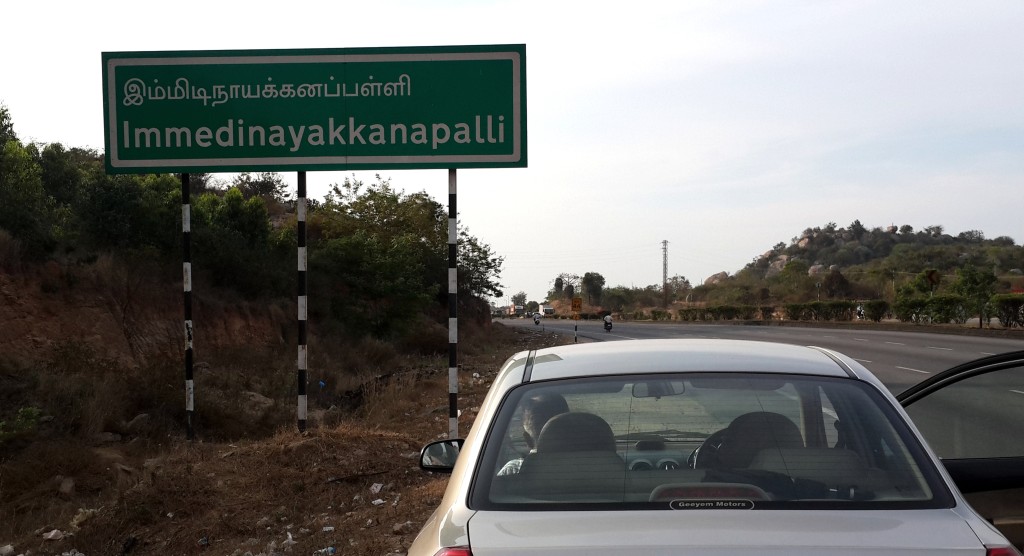
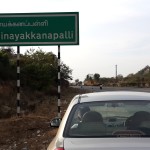
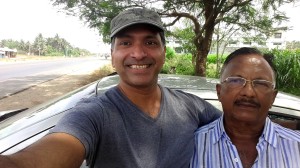
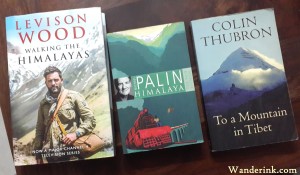
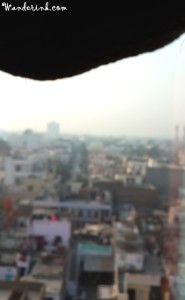

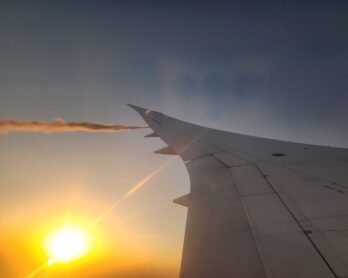
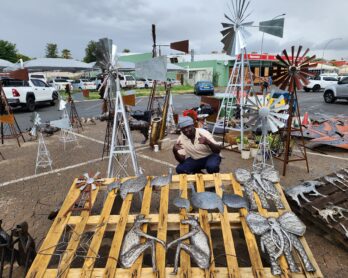



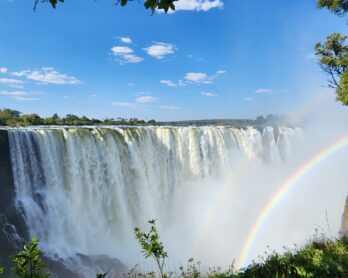
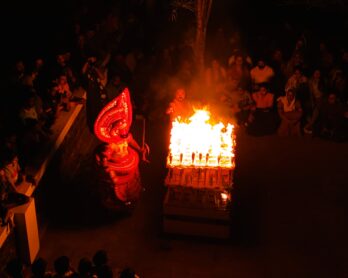
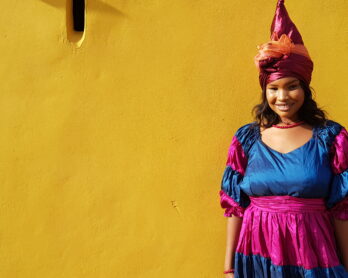
Moving account.Touched as well. We are after all a reflection of our parents in more ways than one.
And don’t we all grow up to be, er, sorta like them! 🙂 Hope you liked the ‘nut’ty views too :))
Indeed! Reminded of my Katwaria Sarai days of 2000. The hearth,the mother in law, the usual business of life that was round the clock. Someday I shall write that too.Lol!
Jauba Kusum…good idea!